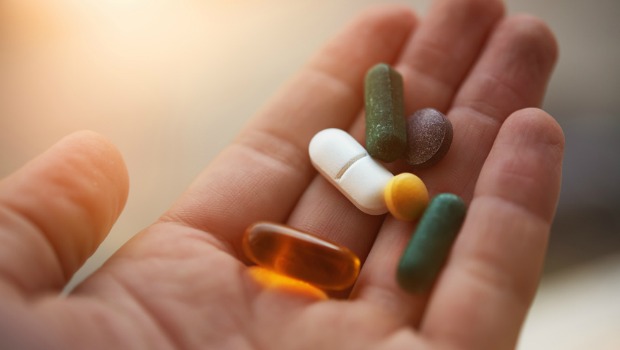
Dietary supplements are not hard to find; walk into any supermarket or health store and you will find endless options at your fingertips. But do you really need them?
When it comes to taking supplements, there are definitely some things you should know. The most important? "Remember that supplements are never a 'cure all,'" stresses Lauren Ott, RD and the CU Anschutz Health and Wellness Center, based in Denver, Colorado. "It is always best to get the nutrients you need through food versus supplements."
While taking supplements should not be an excuse to skimp on your daily fruit or vegetable intake, what if you aren't getting enough of that good stuff and need something to help? Ott shares four things about supplements you need to know.
If you think you may need to take supplements, what are the first steps to take?
OTT: I tend to be pretty conservative with supplements. If you don't have any nutrient deficiencies and are able to consume what you need through food (versus supplements), then I'm probably not going to recommend any supplements. The first thing I would do to assess your need for supplements is to have your blood work done to make sure that you don't have any deficiencies that require supplementation. I would then have your diet analyzed by a registered dietitian so that they can assess if you're falling short on any nutrients that may need supplementing. For example, if I have a vegan come see me, right off the bat I'm going to recommend a B12, iron, calcium, and Omega-3 supplement. If I have someone with a dairy allergy, I may recommend a calcium and D3 supplement. For someone with low protein intake, I may recommend a whey protein.
Should you buy your supplements yourself, or go through a dietician?
OTT: Buying supplements is tough because they are not regulated by the FDA, so some supplements are definitely better than others. I would look for supplements that are USP and/or NSF certified as a start. Your pharmacist or dietitian can give you recommendations for brands that they trust. Keep in mind that there is a huge difference between a dietitian and a "nutritionist," so make sure that you get all recommendations, especially when it applies to supplements, from a registered dietitian (RD).
What are the most common vitamins men and women don't get enough of that they should be checked for?
OTT: I definitely recommend that all of my clients, especially my athletes, get checked for iron deficiency anemia and Vitamin D deficiency. Dependent on age, family history and weight, I also recommend that my active clients receive bone density testing to assess needs for calcium supplementation. For vegan and vegetarian clients, testing vitamin B12 can be important. Most of my clients are not consuming enough fiber and antioxidants, but I recommend getting this from food and not supplements.
Can supplements affect athletic performance?
OTT: Both over and under supplementation can affect athletic performance. For example, someone with iron deficiency anemia will likely have low energy levels, which can affect endurance. Many supplements have very negative side effects if taken in excess, so I never recommend that clients consume over 100% of their RDI (Recommended Daily Intake) for any particular vitamin unless their physician has prescribed them to do so.
Ready to swim, bike and run? Sign up for your next triathlon here.

